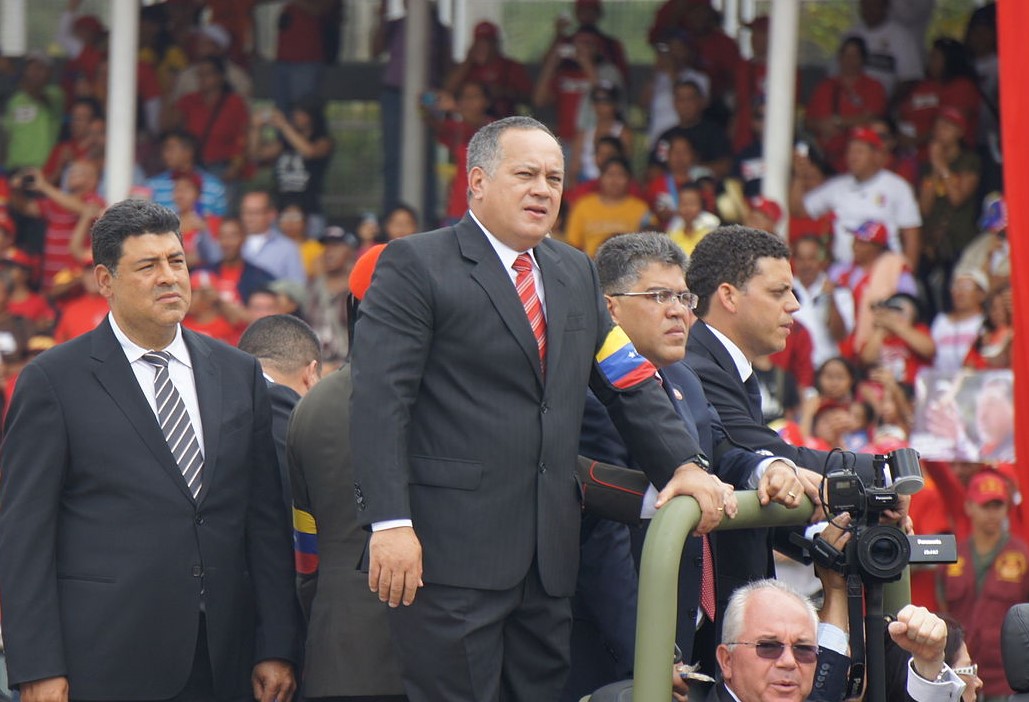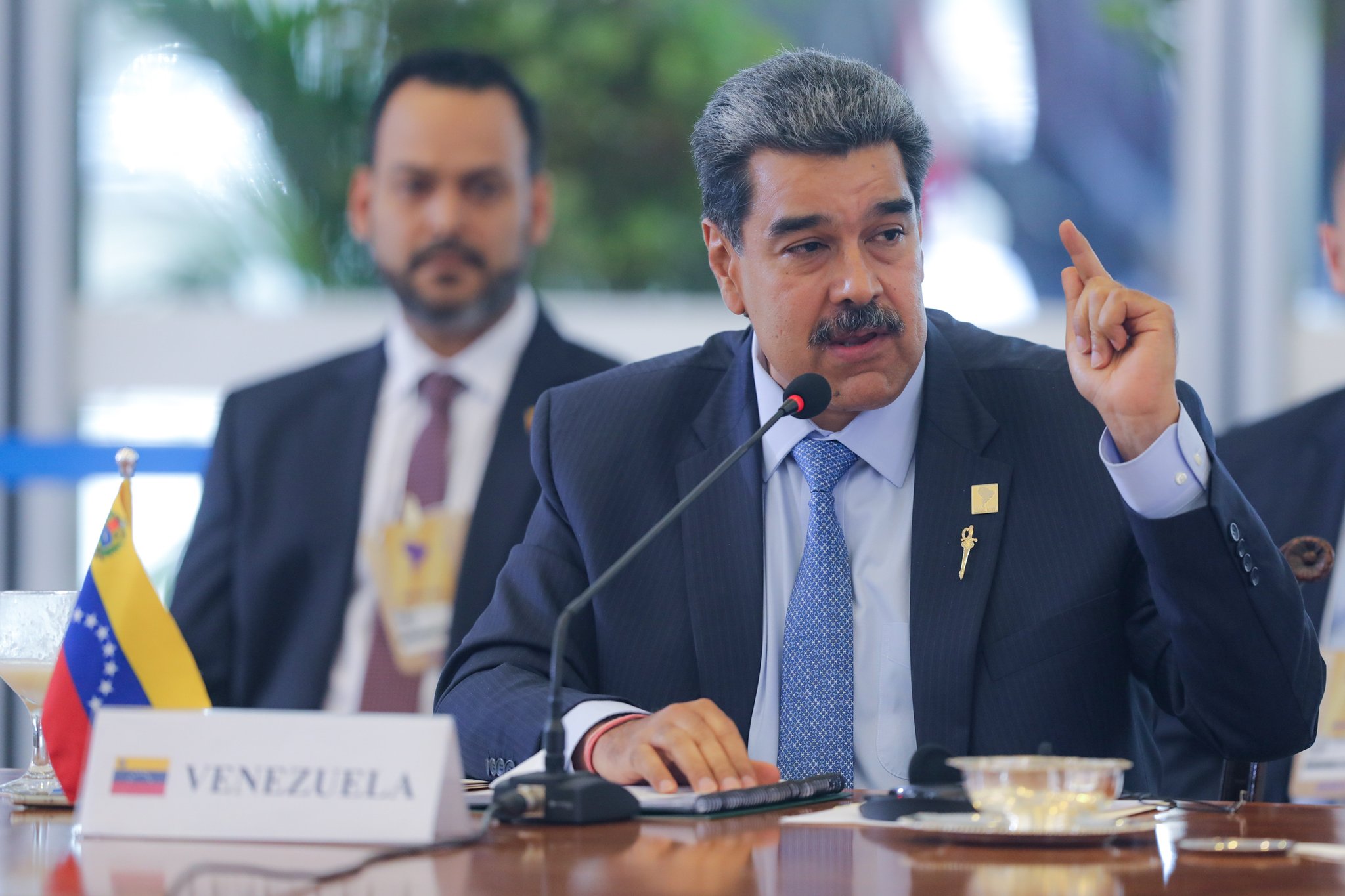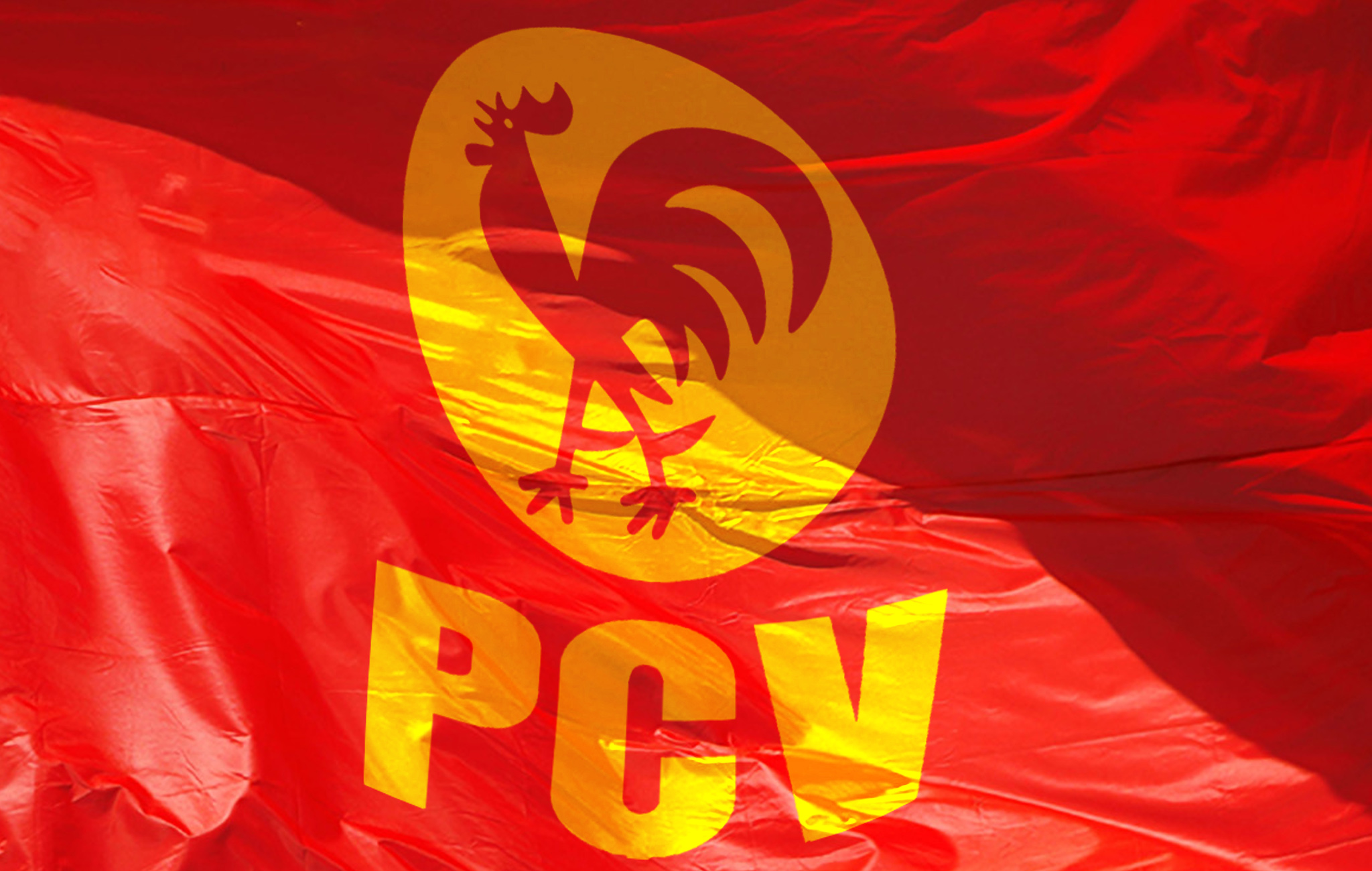The leadership of the United Socialist Party of Venezuela (PSUV), the governing party in Venezuela, is moving towards the decisive phase of its plan to undermine the Communist Party of Venezuela (PCV). On 21 May, a group of hired agents held a fraudulent ‘Extraordinary Congress of PCV branches’ in Caracas, usurping the acronym and symbols of the Communist Party and preparing the ground for future attacks on the party by the state.
This shameful act, clearly carried out on the orders of the PSUV leadership, has been repudiated by broad layers of the left nationally and internationally, including by members and figures from the governing party itself. The widespread backlash towards the threat of intervention in the PCV since the beginning of this controversy has caused the PSUV to move cautiously.
Perfecto Abreu – legitimate president of the PCV – declared in an interview with Unión Radio, that no active PCV member took part in this media circus. The PCV gave a list of attendees, demonstrating the real credentials of the paid political mercenaries who led the fake congress. These included known PSUV members, and one individual who was expelled from the PCV over a year earlier.
It is abundantly clear that the aim of this manoeuvre is to hijack the legal banner of the PCV or, failing that, to paralyse the party by preventing it and the Popular Revolutionary Alternative (APR, a left-wing coalition of which the PCV is a member) from participating in future elections.
The PSUV leadership fears that a left-wing opposition with mass support could emerge. This is why it has resorted to authoritarian measures aimed at curtailing the political activity of the APR in general and the PCV in particular.
Background
The attacks by the PSUV leadership against the PCV began in 2020, following the latter’s break with the government’s anti-worker policies. The decisive turning point came when the PCV, having broken with the GPP (Great Patriotic Pole, the PSUV-led coalition of parties) joined with others to form the APR in August later that same year. In the APR, the PCV – along with various revolutionary organisations including Lucha de Clases, the Venezuelan section of the International Marxist Tendency – formed a new electoral alliance to the left of the PSUV.
The state responded with a judicial coup against the leadership of the Patria Para Todos party (PPT), a party which had been involved in forming the APR. In its place, control of the party was handed to a new leadership, coming from the right-wing minority faction opposed to participation in the APR. As such, the APR was only able to run candidates for the parliamentary elections of 2020 and the regional elections of 2021 on the ticket of the PCV.
Since then, senior PSUV leaders have called for censorship of the APR at election time, and there have been a series of smear campaigns and threats against the PCV. These attacks have been carried out alongside failed attempts to buy off PCV leaders or members. These were similar methods to those used in what was called ‘Operation Scorpion’, during which PSUV leaders and businessmen bought off right-wing deputies at the end of 2019, so that they would not recognise Juan Guaidó.
In this whole shameful story, the presidential speech of November 2020 stands out, during which Nicolás Maduro covered the PCV symbol with his hand while showing the voting card for the parliamentary elections of that year.
The anti-communist onslaught intensified from November 2021. At that time, vice-president of the PSUV Diosdado Cabello, made the claim on television that he had received letters from supposed PCV members. These imaginary PCV members questioned the party’s leadership and continued to support the national government, and supposedly therefore rejected the party’s opposition to and dissociation from the government policy – a policy adopted by the party in 2020 and ratified at its XVI Congress in 2022.
On 4 February, at a march in Caracas called by the PSUV to commemorate the 31st anniversary of the military uprising led by Hugo Chávez in 1992, agents provocateurs from the State of Monagas, disguised in PCV shirts and symbols, announced that they would initiate a “process of rescuing the PCV”, returning it to the Great Patriotic Pole (GPP) – the electoral alliance led by the PSUV.
With this aim in mind, on 11 February, a meeting was held of supposed PCV members from various states in the centre and east of the country in a well-known hotel in the city of Maturín. These supposed members denounced their alleged exclusion by the party leadership, which, they claimed, had put itself at the service of US imperialism.
The national leadership and the Monagas Regional Committee of the PCV immediately denied that those attending the meeting belonged to their party, and presented evidence that these individuals had previously worked with the PSUV. They also demonstrated that serving officials of the National Electoral Council participated in this fraudulent meeting. That the deployment of political mercenaries began in the state of Monagas is indicative of the fact that the assault against the PCV is being coordinated by Diosdado Cabello – vice president of the PSUV whose home state is Monagas.
Weeks later, a recording of Jesús Faría Tortosa, former member of the PCV and current member of the PSUV – widely known for his scandalous defence of the government’s economic policy – was leaked on social media. The leak indicated that he was coordinating assemblies of political mercenaries in several states, as well as attempting to recruit PCV members and the children of former PCV leaders for the attack on the party.
 That the deployment of political mercenaries began in the state of Monagas is indicative of the fact that the assault against the PCV is being coordinated by Diosdado Cabello / Image: Luigino Bracci, Wikimedia Commons
That the deployment of political mercenaries began in the state of Monagas is indicative of the fact that the assault against the PCV is being coordinated by Diosdado Cabello / Image: Luigino Bracci, Wikimedia Commons
Eventually, the fake congress was held on 21 May. Little is known about the decisions and resolutions that were made. This is because it was a mere media circus designed to prepare public opinion for the state’s intervention in the party.
Options to complete this plan include use of the Supreme Court of Justice, a ruling from which could derecognise the legitimate leadership of the PCV and grant legal ownership of the party to a junta of PSUV mercenaries. Alternatively, the organisation could be paralysed through use of an appeal to the National Electoral Council.
State interventionism
Government intervention in political parties, especially those of the left, is typical of the right-wing tactics of the PSUV leadership, and draws from the methods of Bonapartism. This leadership, making use of the state, initially hijacked the symbols and legal banner of right-wing parties such as Acción Democrática (AD), Primero Justicia (PJ), Voluntad Popular (VP), among others, in a failed attempt to build a tailor-made opposition, which never took off.
This is no different from the anti-democratic attitude of the country’s right wing, which, despite having failed in its attempts to seize power, has always demonstrated its coup-plotting tendencies and its desire to persecute and proscribe the left. The coup of April 2002 showed in just a few hours how little political and democratic rights mean to the national bourgeoisie and imperialism. The constant whining of these layers about the lack of democracy in Venezuela is nothing but pure hypocrisy.
After having been used to attack the right, the interventionist tactics were replicated against left-wing parties, such as PPT, Tupamaros, Unidad Popular Venezolana (UPV) and others. This was executed with the clear aim of handing control of the parties over to individuals and tendencies sympathetic to Maduro, in blatant disregard for their internal democratic processes and the will of their members.
In the case of those parties of the left in which it has intervened, the PSUV leadership wishes to have absolute control of the GPP and those parties constituting it. This undemocratic intervention in political parties is the means by which the government resolved in its favour the continuous struggle of party tendencies, so that it might issue direct orders without question. Today, the GPP is thus nothing more than a coalition around the PSUV bringing together a set of hijacked parties, without a life of their own. Fear of the most lukewarm criticism or of even the germ of a left-wing opposition emerging is the basis of their entire existence.
Anti-worker policies and the elimination of the left
With the development of the world capitalist crisis and its severe impact on Venezuela – aggravated by its rentier economy and the contradictions of a revolution derailed by its leadership – the government has set itself upon a bourgeois and anti-worker solution. Burying almost all the gains of the first stage of the Bolivarian Revolution, Maduro embarked on an austerity package that has pulverised wages and labour rights. The government has privatised numerous state enterprises, and is promising the creation of Special Economic Zones, while imprisoning workers and trade unionists who protest or attempt to organise working-class resistance.
 Maduro embarked on an austerity package that has pulverised wages and labour rights / Image: Nicolás Maduro, Twitter
Maduro embarked on an austerity package that has pulverised wages and labour rights / Image: Nicolás Maduro, Twitter
On the basis of the most obscene corruption, the PSUV leadership has favoured the emergence of a caste of nouveau riche, as parasitic as the traditional bourgeoisie, anchored to an economy based on bodegones, (expensive shops selling imported goods) and the deepest social inequality.
The future of Venezuela is being negotiated behind the backs and to the detriment of the working class. The PSUV leadership – representing the nouveau riche and backed by Russia and China – is engaged in a dialogue with the bourgeoisie: the bosses’ union, business organisations, etc. backed by the United States. The destruction of the left forms one corner of this agreement under construction between them.
With the planned assault on the PCV, the PSUV bureaucracy is telling the traditional bourgeoisie and the various imperialist powers that there is nothing to worry about, that Chávez's policies are dead, and that the state’s demagogic allusions to socialism are just empty rhetoric.
One of the reasons for this offensive against the left is the contradiction that exists in Venezuela today. While the political leadership cynically exploits the legacy of Chávez and the revolution in words, it is simultaneously executing ferocious attacks on the working class. This contradiction makes the government vulnerable to a left alternative.
Solidarity with the PCV
As Marxists, we oppose all attempts to undermine democratic freedoms, and rights to politically organise that favour the bourgeois state. Leon Trotsky, in his article Freedom of the Press and the Working Class (1928), pointed out: “Theory, as well as historic experience, testify that any restriction to democracy in bourgeois society, is eventually directed against the proletariat, just as taxes eventually fall on the shoulders of the proletariat.” Venezuela today is the greatest proof of these words.
As we have explained throughout our recent analysis, the Bolivarian Revolution was stopped halfway and then derailed by its petty-bourgeois leadership. After burning its fingers trying to implement the chimaera of a mixed economy it has, since 2018, embraced a liberal and monetarist policy in the economic sphere, and Bonapartist methods in the social and political spheres. The terrible crisis that Venezuela is going through is not the result of socialism, which was never established. Rather, it is the result of the rentier capitalism that the PSUV leadership has maintained with ignorant stubbornness.
Despite the differences in our politics and traditions between the IMT and the PCV, it is the duty of revolutionaries to support this party, which is under siege by a government determined to violate political and democratic rights in its rush to impose anti-worker economic policies at all costs. It is a government that, while trying to ingratiate itself with the traditional oligarchy and imperialism, does not blush at criminalising workers’ struggles and persecuting the left. The PSUV leadership has dropped the facade that linked it to the left.
#AlanWoods dirigente de la Corriente Marxista Internacional, expresa su solidaridad con el @PCV_Venezuela y su rechazo a los ataques que buscan desconocer su legítima dirección y arrebatarle su tarjeta electoral.
— CMI Venezuela (@LdcVenezuela) February 27, 2023
Ver completo:https://t.co/0eTCaDj6qx#SolidaridadInternacional pic.twitter.com/5EXYgS3eNq
The comrades of the IMT in Venezuela offer our support and solidarity to the membership of the PCV in these difficult days. The political commitment of the party’s cadres must prevail and remain steadfast. The most effective way to confront the anti-democratic policies of the government is to continue to appeal to the revolutionary solidarity of the working class. The PCV must appeal to working class organisations in Venezuela and around the world, as it confronts the government’s policies on the streets, in the fields, in the factories and in the workplaces.
It is the duty of all revolutionaries – and even of consistent democrats – around the world to speak out against the assault on the PCV. By uniting in solidarity, we must exert the necessary pressure to give the government pause to question the step it is about to take. Solidarity with the PCV has so far succeeded in slowing the progress of the government’s plan.
Now is the time to double down! Struggle, resistance and solidarity are the only way forward!

